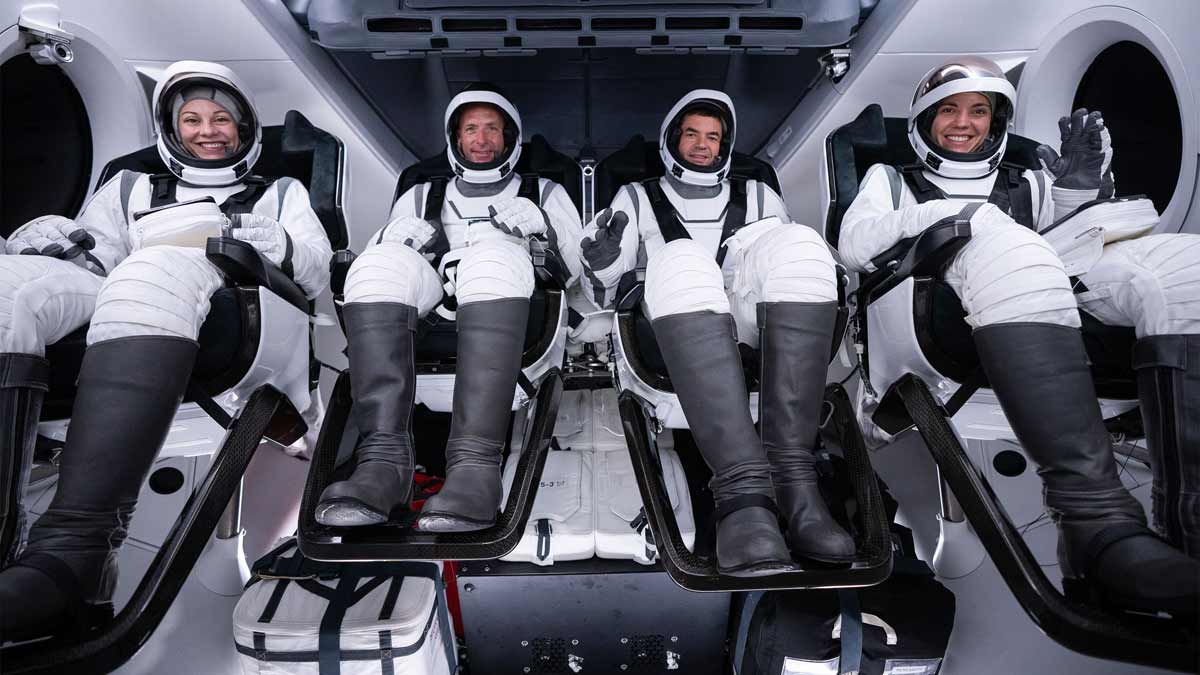‘Sometimes the hardest journeys require the most patience’, posted Jared Isaacman on X as he and his crewmates await to embark on the ‘Polaris Dawn’ mission. This is a historical mission, with Polaris Dawn completing the first-ever private spacewalk and travelling farthest to the earth since Apollo. Over half a century has passed since humans have flown this far from Earth. Isaacman will fly as Polaris Dawn's mission commander, and will be joined by the mission's pilot, retired United States Air Force (USAF) Lieutenant Colonel Scott "Kidd" Poteet, and the first two SpaceX employees to launch to orbit, Sarah Gillis and Anna Menon, who both work as Lead Space Operations Engineers. Gillis and Menon will serve as mission specialists.
The team at TrialX is eagerly awaiting the launch of the mission they are integral to. In the last few months, they have been working to develop the EXPAND app, in partnership with the Translational Research Institute for Space Health (TRISH) at the Baylor College of Medicine for the Polaris Dawn crew.
As part of the mission, the four-member crew will conduct a wide range of experiments to collect data on various aspects of human health in space. These studies will examine environmental factors, health and hygiene, personality development, vital signs, cognitive function, vision, motion sickness, decompression sickness, Spaceflight Associated Neuro-Ocular Syndrome (SANS), space radiation, and more.
All health data will be collected using integrated wearables and devices, along with nearly 30 surveys embedded in the EXPAND App. This comprehensive approach is designed to provide valuable insights into how the unique conditions of space affect human health at both physiological and molecular levels.
Additionally, the crew will collect biological samples to contribute to a biobank, aimed at uncovering the molecular changes that occur during spaceflight. A paper detailing the creation and purpose of this biobank, with the most extensive collection of data ever assembled for aerospace medicine and space biology. has been published in Nature, underscoring its significance for future research.
TrialX’s remote data collection platform is the backbone of the EXPAND App, providing a robust and secure system for data collection, management and analysis. The platform integrates seamlessly with various health monitoring devices and sensors, ensuring real-time data capture, implementing top-tier security protocols and is designed to handle large volumes of data, including genomic data.
TrialX was chosen by TRISH in 2021 to build the innovative centralised data repository and analytics platform for the first all-civilian Inspiration4 mission. The database was built as part of TRISH’s EXPAND (Enhancing eXploration and Analog Definition) programme, a multi-year initiative developed to help the NASA Human Research Program to reduce the risk to human health in space. The database supports a variety of data types across a multitude of individual research studies and currently houses data from subjects across six space missions – Inspiration 4, MS-20, Axiom-1, Axiom-2, Axiom-3 and Polaris Dawn. It equips space researchers to reuse and integrate research data across different research studies and unlock innovative actionable insights.
TrialX has always been on the forefront of cutting edge clinical research solutions and space health informatics. From launching the first clinical trials app on Google Health in 2008, to powering online patient recruitment and research data collection for space missions, co-founders Sharib Khan and Chintan Patel are on a mission to facilitate One Billion Health Research Contributions.
"Our mission at TrialX has always been to bridge the gap between research and participants, whether on Earth or in space. Partnering with TRISH to support commercial space missions allows us to extend our commitment to advancing clinical research, using technology to empower both researchers and participants in groundbreaking ways," said CEO and cofounder Sharib Khan.
Khan and Patel first crossed paths at Columbia University, where their strong rapport led to the founding of TrialX Inc. and a partnership that has spanned over 16 years. Headquartered in New York, with presence in India, the Philippines, and Romania, the company is committed to accelerating clinical research and bridging the gap between research and patients—both on Earth and beyond.
Khan brings a deep understanding of clinical research and digital health to the table. With a background in medical sciences and biomedical informatics, he has been a driving force behind TrialX’s mission to democratise clinical research by using technology to engage and empower patients. Patel, with his background in computer science and a passion for healthcare innovation, plays a crucial role in driving technology solutions that make clinical research more accessible and efficient. Their shared vision and commitment to innovation and patient-centricity continues to push the boundaries of what’s possible in clinical trials and space health.
More recently, TRISH, in collaboration with consortium partners Massachusetts Institute of Technology and California Institute of Technology, has partnered with TrialX to develop a software platform for a portable device that acts as a “to-go” version of the EXPAND master repository. This portable device is designed to extend the repository’s capabilities, allowing spaceflight participants to access their previously collected health information and store new data offline during their mission.
Upon returning to Earth, the device will automatically synchronise all collected data with the EXPAND Master Repository. If a participant continues on another segment of their space journey, the portable device will seamlessly transfer their existing health data from one mission segment to the next. By tackling the challenges of data transfer and interoperability in space, this portable solution aims to enhance the efficiency and quality of healthcare for astronauts.
The Polaris Dawn mission was initially slated to launch on August 27, but was delayed to August 28 due to technical issues and then postponed again, due to splashdown weather concerns for the end of the mission.



